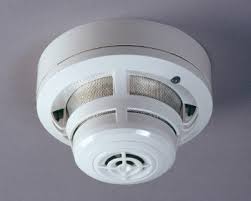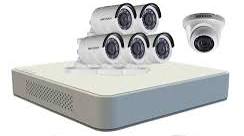Fire Detector Sensor: Enhancing Safety and Security
Fire detector sensors play a crucial role in safeguarding lives and property by detecting the presence of fire or smoke in residential, commercial, and industrial settings. These advanced devices are designed to provide early warning signals, allowing occupants to evacuate quickly and emergency responders to take prompt action.
There are various types of fire detector sensors available in the market, each with its unique features and capabilities. Some common types include:
- Smoke Detectors: Smoke detectors are one of the most widely used fire detection devices. They work by sensing the presence of smoke particles in the air and triggering an alarm when smoke levels exceed a certain threshold.
- Heat Detectors: Heat detectors are designed to activate when they detect a rapid rise in temperature, indicating the presence of a fire. These detectors are ideal for areas where smoke detectors may not be suitable, such as kitchens or dusty environments.
- Flame Detectors: Flame detectors are specialized sensors that can detect the presence of flames or intense heat. They are commonly used in high-risk environments where fires can escalate quickly, such as chemical plants or oil refineries.
Modern fire detector sensors utilize advanced technologies such as photoelectric sensors, ionization chambers, and infrared sensors to accurately detect potential fire hazards. These sensors are often integrated into larger fire alarm systems that include control panels, notification devices, and automatic suppression systems for comprehensive protection.
Regular maintenance and testing of fire detector sensors are essential to ensure their proper functioning when needed. It is recommended to follow manufacturer guidelines for testing frequencies and replacement intervals to keep the system operational at all times.
In conclusion, fire detector sensors are indispensable tools for enhancing safety and security in various environments. By investing in reliable fire detection systems and staying vigilant about maintenance practices, individuals and organizations can significantly reduce the risk of fire-related incidents and minimize potential damage.
Top 9 Benefits of Fire Detector Sensors: Ensuring Safety and Peace of Mind
- Early detection of fire or smoke hazards
- Provides timely alerts for quick evacuation
- Enhances overall safety and security in buildings
- Reduces the risk of property damage and loss
- Can be integrated into comprehensive fire alarm systems
- Utilizes advanced sensor technologies for accurate detection
- Suitable for residential, commercial, and industrial applications
- Easy to install and maintain with proper care
- Peace of mind knowing that a reliable safety measure is in place
Challenges of Fire Detector Sensors: False Alarms, Maintenance, Coverage, and Sensitivity
Early detection of fire or smoke hazards
Early detection of fire or smoke hazards is a key advantage of fire detector sensors. By promptly sensing the presence of smoke or fire particles in the air, these sensors provide crucial early warning signals that allow individuals to take immediate action, such as evacuating the premises and alerting emergency services. This early detection capability can significantly reduce response times and help prevent small fires from escalating into large-scale emergencies, ultimately saving lives and minimizing property damage. Fire detector sensors play a vital role in enhancing overall safety and security by providing timely alerts that enable proactive measures to be taken in the event of a fire threat.
Provides timely alerts for quick evacuation
Fire detector sensors provide a crucial advantage by offering timely alerts for quick evacuation in the event of a fire emergency. By detecting smoke, heat, or flames at the earliest stages, these sensors can trigger alarms swiftly, giving occupants valuable time to evacuate the premises safely. This proactive approach not only saves lives but also helps prevent injuries and minimize property damage by enabling swift response from emergency services. The ability of fire detector sensors to provide early warnings plays a vital role in ensuring the safety and well-being of individuals in residential, commercial, and industrial settings.
Enhances overall safety and security in buildings
Fire detector sensors play a vital role in enhancing overall safety and security in buildings. By promptly detecting the presence of fire or smoke, these sensors provide early warnings that enable swift evacuation procedures and timely intervention by emergency responders. This proactive approach not only helps prevent potential injuries and fatalities but also minimizes property damage caused by fires. With reliable fire detector sensors in place, building occupants can have peace of mind knowing that there is an added layer of protection against unforeseen fire hazards, making the environment safer for everyone.
Reduces the risk of property damage and loss
The use of fire detector sensors significantly reduces the risk of property damage and loss by providing early detection of potential fire hazards. By promptly alerting occupants and emergency responders to the presence of smoke, heat, or flames, these sensors enable swift action to be taken to contain and extinguish fires before they escalate. This proactive approach not only helps in saving lives but also minimizes the extent of damage to buildings, belongings, and assets, ultimately mitigating financial losses associated with fire incidents.
Can be integrated into comprehensive fire alarm systems
Fire detector sensors offer the significant advantage of being able to be seamlessly integrated into comprehensive fire alarm systems. By incorporating these sensors into a larger fire detection and notification system, users can benefit from a more robust and interconnected network that provides early detection of fire hazards and triggers timely alerts for evacuation and emergency response. This integration ensures a coordinated and efficient response to potential fires, enhancing overall safety measures and minimizing the risk of property damage or harm to individuals in residential, commercial, or industrial settings.
Utilizes advanced sensor technologies for accurate detection
Fire detector sensors offer the distinct advantage of utilizing advanced sensor technologies for accurate detection of fire hazards. By incorporating cutting-edge technologies such as photoelectric sensors, ionization chambers, and infrared sensors, these devices can swiftly and precisely identify the presence of smoke, heat, or flames. This high level of accuracy ensures early detection of potential fire threats, allowing for timely response measures to be implemented and mitigating the risk of extensive damage or harm. The use of advanced sensor technologies in fire detector sensors underscores their effectiveness in providing reliable and proactive fire safety solutions for residential, commercial, and industrial settings.
Suitable for residential, commercial, and industrial applications
Fire detector sensors offer the significant advantage of being suitable for a wide range of applications, including residential, commercial, and industrial settings. Whether installed in homes, offices, retail spaces, warehouses, or manufacturing facilities, these versatile sensors provide reliable fire detection capabilities to enhance safety and protect lives and property. Their adaptability across different environments makes them a valuable asset for ensuring early warning and prompt response to fire emergencies in diverse settings.
Easy to install and maintain with proper care
Ensuring safety and peace of mind, one significant advantage of fire detector sensors is their ease of installation and maintenance with proper care. These devices are designed to be user-friendly, allowing for straightforward setup in homes, offices, and other facilities. With regular maintenance and attention to manufacturer guidelines, fire detector sensors can remain highly effective in detecting potential fire hazards. By investing time in proper care and upkeep, individuals can maximize the longevity and reliability of their fire detection systems, contributing to a safer environment for all occupants.
Peace of mind knowing that a reliable safety measure is in place
Having a fire detector sensor installed provides a sense of peace of mind, knowing that a reliable safety measure is in place to alert occupants in case of a fire emergency. This proactive approach to fire safety ensures that individuals can rest assured that they will be promptly notified in the event of a potential threat, allowing for timely evacuation and minimizing risks to life and property. The presence of a dependable fire detector sensor offers reassurance and confidence, creating a safer environment for everyone within the premises.
False Alarms
False Alarms: While fire detector sensors are essential for detecting potential fire hazards, one significant drawback is the occurrence of false alarms. Factors such as dust, cooking fumes, or steam can mistakenly trigger the sensors, causing unnecessary disruptions and creating confusion. False alarms not only waste valuable time and resources but also desensitize occupants to genuine fire alerts, potentially putting lives and property at risk. Proper maintenance, regular cleaning, and strategic sensor placement can help mitigate the issue of false alarms and ensure the reliable performance of fire detection systems when needed most.
Maintenance Requirements
Regular maintenance and testing of fire detector sensors are crucial for ensuring their effectiveness in detecting and alerting to potential fire hazards. However, this maintenance requirement can pose a significant con as it involves both time-consuming tasks and additional costs. Organizations and individuals must allocate resources for scheduled inspections, testing, and repairs to keep the fire detection system operational at all times. Failure to adhere to proper maintenance practices can lead to false alarms, malfunctioning sensors, or even system failures during critical situations, compromising the safety and security of the premises.
Limited Coverage
Some fire detector sensors may have limited coverage areas, which can be a significant drawback. In situations where a single sensor cannot adequately protect larger spaces, multiple devices may be required, leading to increased installation complexity and cost. This limitation can pose challenges in ensuring comprehensive fire detection coverage throughout a building or facility, especially in expansive or multi-level structures. Addressing the issue of limited coverage effectively requires careful planning and strategic placement of sensors to optimize their effectiveness and minimize potential blind spots.
Sensitivity Issues
Sensitivity Issues: The sensitivity settings of fire detector sensors pose a significant challenge as they need to be meticulously calibrated to strike a balance between detecting actual fires and preventing false alarms. If the sensitivity is set too low, there is a risk of missing genuine fire incidents, jeopardizing the safety of occupants and property. On the other hand, if the sensitivity is too high, the sensor may become overly reactive to minor disturbances like cooking smoke or steam, leading to frequent false alarms that can be disruptive and costly. Finding the optimal sensitivity level requires careful consideration and testing to ensure that the fire detector sensor functions effectively without compromising reliability.




